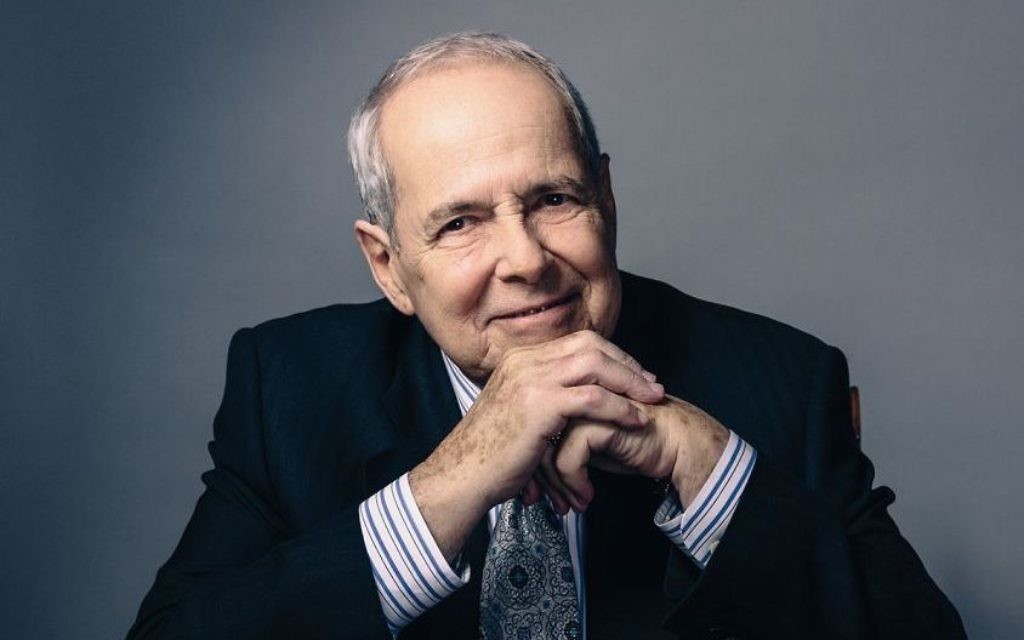Sam Massell’s Song Never Gets Old
The "mayor of Buckhead" brings honesty, optimism and a bit of nostalgia to his authorized biography.
Sam Massell didn’t need a biography to secure his place in Atlanta history. He’ll always be the city’s first Jewish mayor, and, depending on the results Nov. 7, could remain the last.
It was 44 years ago that he lost a runoff for re-election to Maynard Jackson, marking Atlanta’s shift from a white-led to a black-led city government. Although Massell’s new authorized biography, “Play It Again, Sam: The Notable Life of Sam Massell,” makes the point from the start that he has thrived in four distinct careers, the man now often called the “mayor of Buckhead” wants to be sure that legacy of transition is remembered.
“I wanted to pinpoint my legacy. I guess everybody wants to do that before they leave,” Massell said in an interview in his Buckhead Coalition office at Tower Place.
Get The AJT Newsletter by email and never miss our top stories Free Sign Up
When he took office in January 1970, Atlanta had no black department heads. Massell quickly corrected that, so people throughout the municipal government became accustomed to black people being the bosses of white people. Such vital if overdue transitional steps made it easy and peaceful for a black man to lead Atlanta by 1974.

By Charles McNair
Mercer University Press, 230 pages, $29
The book, written by Charles McNair, makes it clear that Massell wanted and initially expected to serve two four-year terms before Atlanta elected a black mayor, but the city’s demographics changed more quickly than he realized.
The same black leaders who had been crucial to his win in 1969 abandoned him four years later when they recognized they had the votes to elect one of their own, and Massell doesn’t blame them.
“Of course I regret it, but I don’t think it was wrong. There shouldn’t have been any surprise,” he said. “The white people would do the same thing if they’d been without power for 125 years.”
If there had been a second Massell term, he said, he would have added to such accomplishments as the establishment of MARTA, the construction of the Omni arena and the appointment of the first woman to what is now the City Council by slashing government costs and spending money only where it was needed it.
“If you had the highest-paid police and highest-paid teachers for a decade, you would have the best city in the world,” he said.
He planned to cut MARTA bus fares from 15 cents (already down from 60 cents) to zero. “I know it could be done. I know it should be done. That’s man’s fifth freedom: mobility.”
That pivotal time in Atlanta history, including a desperate, end-of-campaign slogan (“Atlanta’s too young to die”) that Massell insists had no racial intent, is the surface appeal of the book. That’s why it has the intriguing line “Atlanta’s first minority mayor” on the cover.
But it was a brief part of Massell’s 90 years, and much of the joy in “Play It Again, Sam” comes from the tales of the youthful Buddy Massell, who once manufactured counterfeit nickels (his father put a quick stop to that business) and had such a successful and diverse Coke stand on his Druid Hills street that the police shut him down.
“I’ve been a workaholic from 9 to 90,” he said.
He was a natural salesman, entrepreneur, organizer and hustler from the start, even though Massell said he was not popular, was not a particularly interested student and could have sold his military exploits as Sgt. Bilko skits on “The Phil Silvers Show.”
The book includes mistakes and negative moments. Massell said McNair insisted on presenting the full picture, and after reading a magazine profile McNair wrote about him, the ex-mayor wanted him as his biographer.
But it’s still a sunny, almost fawning portrait of Massell, which isn’t surprising: It’s hard to spend as much time with him as McNair did to write the book and not be captivated by him.
That’s why Massell’s free appearance with McNair and Atlanta Journal-Constitution political reporter Jim Galloway at 10 a.m. Thursday, Nov. 9, should be one of the highlights of the Book Festival of the Marcus JCC. After all, his biography is just the beginning of his story.
“I really could do a sequel,” he said. “I got a lot left out of the book.”





comments